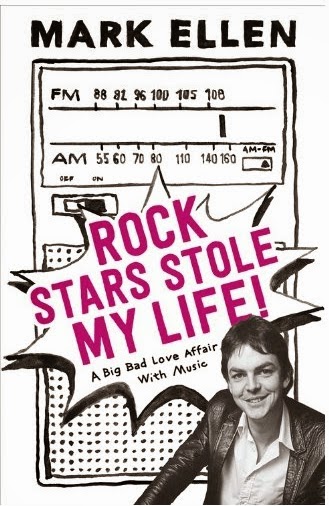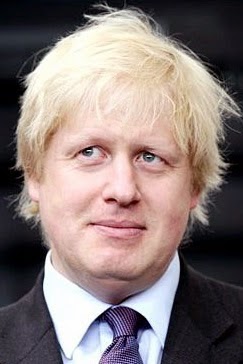Mark Ellen on being forced out at EMAP, in his new book Rock Stars Stole My Life!: “Of course they wanted me out. Why wouldn’t they? I was ‘change resistant.’ I thought their new plan would damage the magazines and the atmosphere in which they were created and I’d told them so. But what hurt the most – a real searing actual pain right across my chest – was that EMAP’s cowardly chief executive, the man who'd sung my praises in speeches to shareholders, who’d claimed to value my nineteen years of work, who’d called me a key plank in the company, hadn’t the decency to walk me round the block and tell me himself that he wanted me out. He let his henchmen do it for him.”
Glenn Greenwald in the Guardian on why he won't be coming to the UK: "I don't trust them not to detain me, interrogate me and even arrest me. Their behaviour has been so extreme and offensive, and the political and media class was so supportive of it, that I feel uncomfortable with the entire atmosphere."
Robert Brown, an expert data protection lawyer, in The Times [£] on the European Court of Justice decision to enshrine the “right to be forgotten” whereby individuals can get information about them removed from internet search engines: “This will open the floodgates for high-profile individuals, celebrities and sporting personalities to take legal action. It will allow the Gary Barlows of this world to get on to their agents to try to get information they do not like removed.”
Guardian readers' editor Chris Elliott on Chris Huhne's column on Constance Briscoe: "I understand that when you have a protagonist in the midst of a major scandal the most obvious decision is to run with it, but I agree with the readers: I wished the Guardian had passed on this one. The problem, I think, is not that it is a partial account – opinion pieces are. But any insight into the case is crowded by a degree of animus that undermines the account."
Boris Johnson in the Telegraph: "Now can someone tell me, in the name of all that is holy, why David Lowe of Radio Devon was made to resign for mistakenly playing an old recording of the Sun Has Got His Hat On – and yet the BBC schedulers see nothing wrong with broadcasting Pulp Fiction?... In our own modest way, we live in a Boko Haram world, where it all depends on the swirling rage of the internet mob, and where terrified bureaucrats and politicians are borne along on a torrent of confected outrage."
The Grey Cardigan on TheSpinAlley: "IS THERE anything more pointless and pretentious than the editor of a provincial British newspaper tweeting a picture of themselves holding a piece of paper on which is written '#Bring Back Our Girls'?
Matthew Parris quits Twitter in The Times [£]: "Twitter’s a great idea. I absolutely don’t knock the concept of a turbo-charged village pump but it’s not for me. Several times I’ve had to be restrained from tweeting something really stupid; and, worse, if you’re commissioned to write something these days, or perform in a debate, or whatever, the client emails asking you to tweet that you’ll be doing it, or have done it, or re-tweet someone else’s reference to it, or tweet positively about something else somebody has done, and . . . oh dash it all: once marketing people get their claws in, it’s time to get out."
Camden New Journal editor Eric Gordon in his obituary of Tom Welsh: "A gentle man with a conscience, he was a journalist imbued with a fine sense of ethics that, lamentably, he found wanting in much of today’s journalism, especially that of the tabloids."
Associated Press Managing Editor for U.S. News Brian Carovillano in a memo to staff, as reported by the Washington Post: "We are failing to exercise important news judgment when our stories are overlong and not tightly edited...Our digital customers know readers do not have the attention span for most long stories and are in fact turned off when they are too long."
Guardian US editor Janine Gibson, interviewed in World News Publishing Focus: "When we started Guardian US we said we were going to do very, very live and almost documentary long form and cut out all the stuff in the middle. And I think almost every news organisation is now identifying that trend, so the new start-ups, largely billionaire funded, are all over it. People call it explainer journalism, or long form journalism, or investigative journalism, but really they mean something that has weight and meaning and impact beyond the transitory."
[£] = Paywall














No comments:
Post a Comment